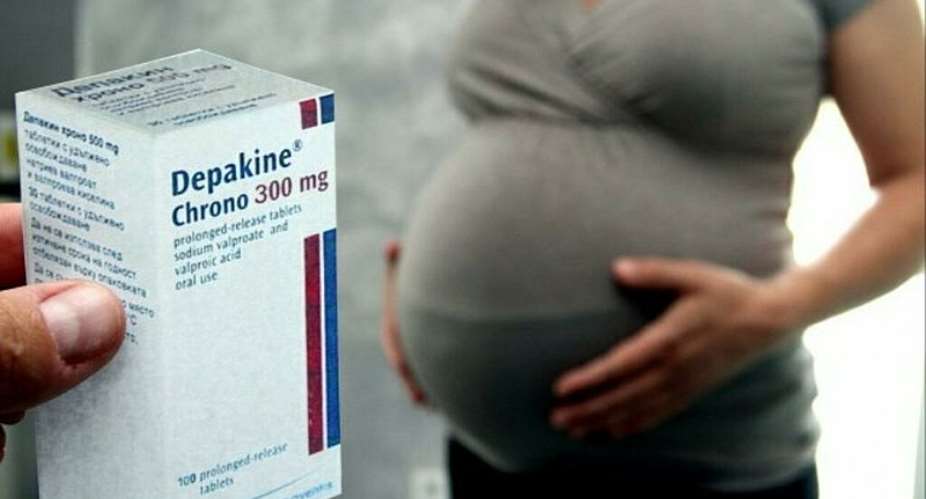French drugmaker Sanofi will appeal a court decision allowing a class-action lawsuit over its epilepsy drug, which has been linked to birth defects. The ruling opens the door for the country's first ever medical class-action lawsuit.
Victims association Apesac launched legal action in September 2021 over Depakine, a drug that has been on the market since 1967.
Also sold under other brand names, Depakine is prescribed in more than 100 countries as an effective treatment for epilepsy and manic phases for bipolar patients.
But its active ingredient, valproic acid, is also believed to have caused birth defects and developmental disorders in children born from mothers who took the drug.
French health authorities have estimated Depakine was responsible for spine and cardiac deformities in 2,150 to 4,100 children, and developmental delays in up to 30,400 children.
Delayed warning
Apesac, which represents 7,500 families, alleges that Sanofi did not start informing patients early enough once it knew about the drug's risks.
The court on Wednesday said the case was “valid” and could move forward.
Sanofi, it said, “produced and marketed a defective product” and "was at fault because it failed to meet the obligation for vigilance and the obligation to inform” patients.
Sanofi said in a statement that it had always been "transparent by alerting the health authorities", and that it would appeal the verdict.
Unprecedented
The court's ruling paves the way for France's first class action in the health sector. Such lawsuits were allowed in 2016, but only for cases against consumer goods companies.
The court ordered the launch of a campaign aimed at patients and their children to inform them of the possibility of joining the class action within five years.
Apesac, which has said families could obtain hundreds of millions of euros in compensation, will appeal Wednesday's ruling on the dates of Sanofi's responsibility.
The drug company only started issuing clear warnings in 2006, advising doctors to not prescribe Depakine to female patients, even though the negative effects on foetuses were known previously.
The court has set the date for those with birth defects from 1998 onwards, and the developmental delays from 2001, while the association says this would exclude half of its members.
Last year, an administrative court found the French state also carried some responsibility, and ordered the authorities to pay damages to several families with severely handicapped children.
Sanofi and France's medicines safety agency ANSM were charged with involuntary manslaughter in 2020 as part of a criminal case.
(with wires)





 List of 24 ministerial nominees approved by Parliament
List of 24 ministerial nominees approved by Parliament
 You were my inspiration, made me who I am today – Lilian Kumah
You were my inspiration, made me who I am today – Lilian Kumah
 Rainstorm destroys Hohoe E.P. Senior High School building
Rainstorm destroys Hohoe E.P. Senior High School building
 John Kumah strongly supported me to become NPP flagbearer – Bawumia reveals
John Kumah strongly supported me to become NPP flagbearer – Bawumia reveals
 Late John Kumah urged me to run for NPP flagbearer, strongly supported me — Bawu...
Late John Kumah urged me to run for NPP flagbearer, strongly supported me — Bawu...
 Akufo-Addo appoints Joseph Kpemka as Deputy MD of BOST
Akufo-Addo appoints Joseph Kpemka as Deputy MD of BOST
 Ablakwa petitions CHRAJ to investigate sale of SSNIT's hotels to Rock City Hotel
Ablakwa petitions CHRAJ to investigate sale of SSNIT's hotels to Rock City Hotel
 MoF to provide new bailout for defunct Gold Coast Fund investors – Bawumia revea...
MoF to provide new bailout for defunct Gold Coast Fund investors – Bawumia revea...
 OMCs implement price adjustments despite International petroleum price declines
OMCs implement price adjustments despite International petroleum price declines
 Petition to remove Kissi Agyebeng will disrupt operations of OSP – Martin Kpebu
Petition to remove Kissi Agyebeng will disrupt operations of OSP – Martin Kpebu
